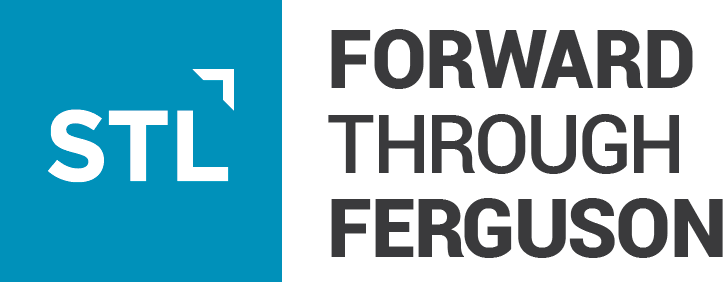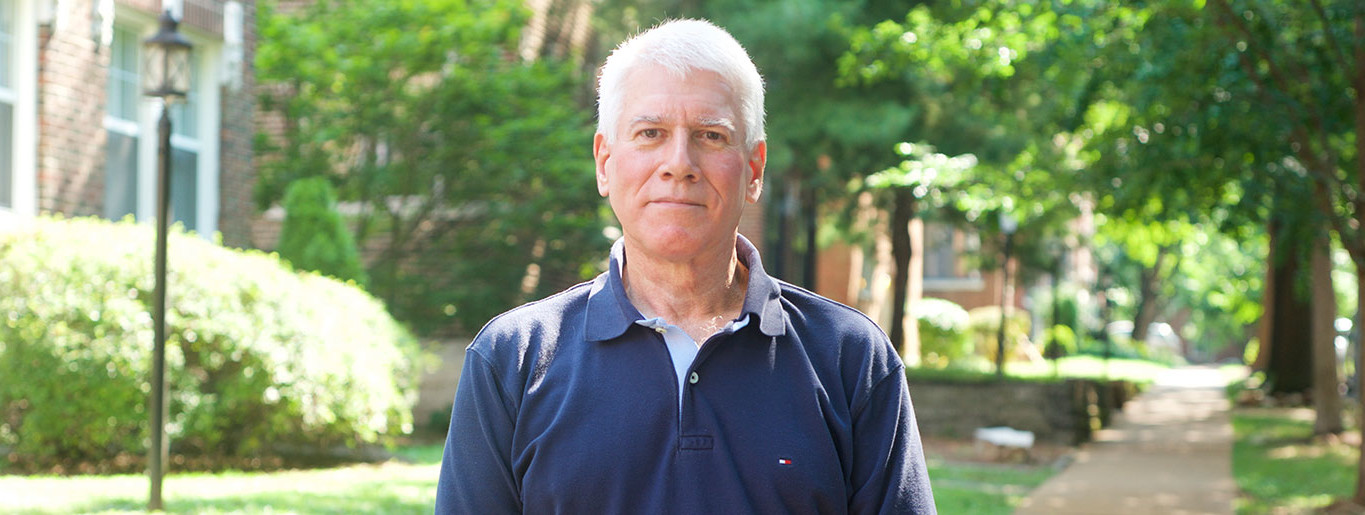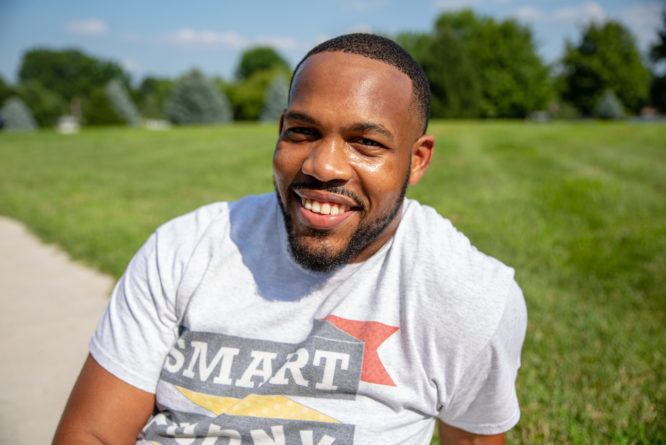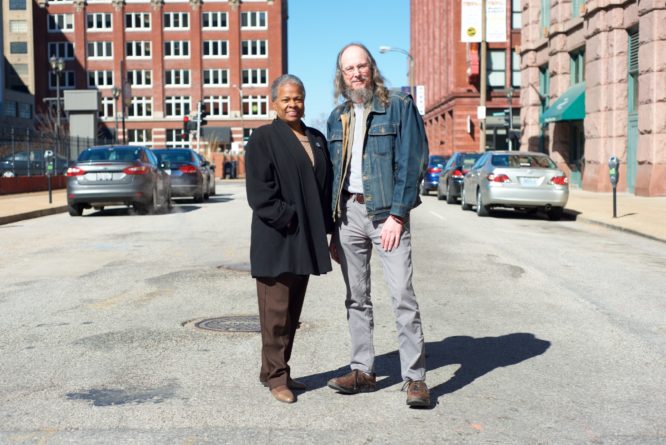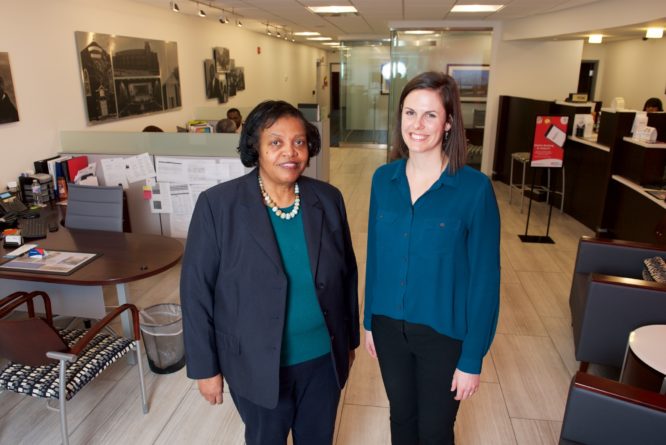“Why do you care?”
I used to give a speech about how important it was for us to work with our disadvantaged neighborhoods and persons in our communities. Because if we’re going to have stable communities, in general, we have to do that. It just makes good sense. Ironically, I was doing some Christmas shopping while visiting and I was a victim of armed assault in a retail store. It wasn’t in a rough neighborhood. It was in a pristine, high-end area. I had given this speech three or four years before, and now I was living this experience. So I think it’s important for all of us to understand we have a vested interest in creating a stable society at the local level. Part of the strategy here, in terms of rebuilding our neighborhoods and communities, is establishing that awareness with everybody. And when you do this, it is enlightening because every family has members who have struggled with this issue or that issue when they’re really honest about it.
Over the years I’ve developed a set of skills that allow me to bring a multidisciplinary approach to the whole concept of community development be it real estate, be it finance, be it a front line health care provider. And in today’s world, when we talk about the delivery of human services that support structure, you have to be multidisciplinary in that approach. That is one of the things about the Ferguson experience I think needs a lot more oversight or visibility. It’s not just about community policing. It’s about how do we create an environment there where everybody has the opportunity to succeed and it’s a safe secure environment for everybody in the community? That requires a wide variety of skills, whether it be in education, housing, healthcare, or economic opportunity. And how do you bring good governance to a small suburban community? To a certain extent, we’ve lost the art of being able to manage that collective set of responsibilities. You can be successful in that type of endeavor if everybody works together and leadership understands the importance of being proactive and engaged.
We have to invest in human capital and become focused on that. That means every child is nurtured all the way along until they enter the world of employment. That’s where we’re really failing.
We have to invest in human capital and become focused on that. That means every child is nurtured all the way along until they enter the world of employment. That’s where we’re really failing. We know that by age four if they haven’t received the right type of nurturing, the odds are not good that they’re going to be successful productive members of society. It’s the old “pay me now, or pay me later,” and later is a lot more expensive. Just looking at the financial aspects of it, it makes sense to invest in every child.
We do live in the tale of two cities — the haves and the have nots — and we are a very divided society. It’s been that way for a long time. And intelligent, educated people drink the Kool-Aid they hear on television and talk radio.
“What’s the hardest conversation you’ve had based on the events that happened last year?”
I think with friends and, in some cases family, getting people to understand the reality that we do live in the tale of two cities — the haves and the have nots — and we are a very divided society. It’s been that way for a long time. And intelligent, educated people drink the Kool-Aid they hear on television and talk radio. The problem here is that there’s big money in being divisive and selling that Kool-Aid. While that sells at the national level, when you get to the local level, and you get engaged and start talking to your neighbors — wherever they live in the community — you begin to realize there’s a real world here. And, for the most part, we have the same interests in the big issues. If we just worked together, the future can be very bright.
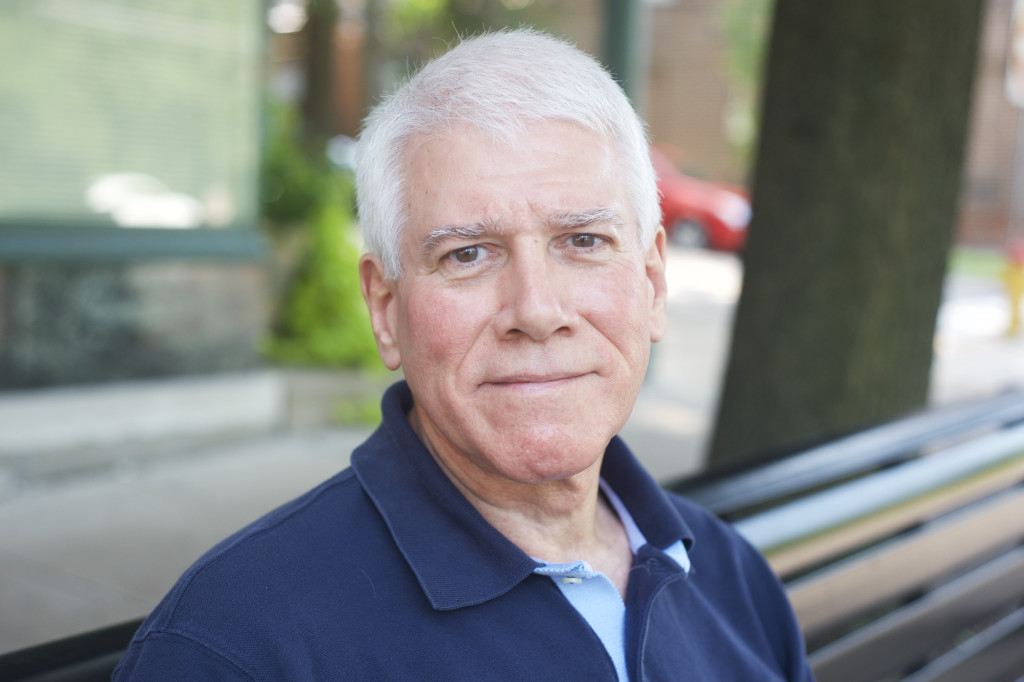
Don Logue, photos by Lindy Drew
